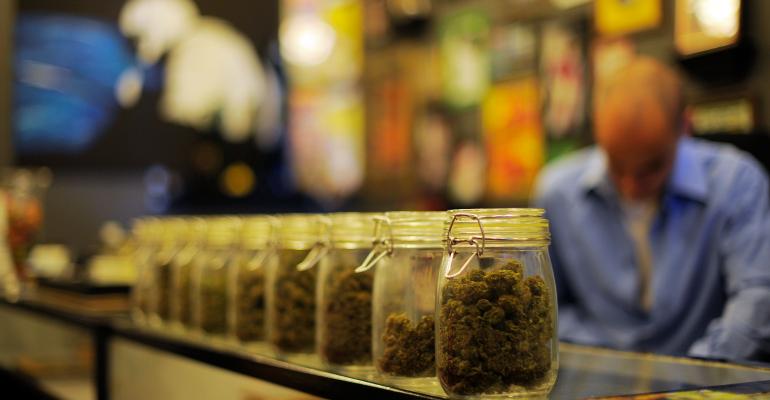Sponsored by IREM
By Andrew Lomo
The midterm elections recently wrapped up and marijuana legalization continues to be a hot-button issue. On November 6th the list of states legalizing marijuana in some form grew to 33 as voters in Missouri and Utah approved it for medical use. Additionally, Michigan became the tenth state to legalize its recreational use.
The legalization of marijuana at the state level has been gaining momentum since California first legalized medical marijuana in 1996. In 2018, 19 states considered bills to legalize recreational marijuana, but Vermont remains the sole state to enact legalization through its legislature, rather than by ballot initiative.
According to a 2018 Gallup poll, 66 percent of U.S. adults support legalization, while only 32 percent oppose it. Regardless of one’s personal feelings on the issue, it is hard to imagine the trend reversing anytime soon. However, while two-thirds of the states have legalized marijuana, it is important to remember that under federal law marijuana is still classified as a Schedule I controlled substance.
Property owners and managers may have mixed opinions on legalization. Some have embraced it as a means to increase commercial and residential property values, and have noted that strict zoning laws and significant infrastructure modifications required to grow marijuana mean tenants tend to stay longer. Others look at it as carrying too much risk. In addition to the possible impacts on the tenants such as odors and smoke, there could be an impact on the property too. For example, improperly growing marijuana can pose significant mold risks as it grows in a humid climate, and each plant can require up to a gallon of water per day. Growing operations can also bring about fire hazards as growing indoors uses an immense amount of electricity. For example, a four-plant lighting module uses as much electricity as 29 refrigerators.
So, how can you prepare yourself, your property, and your tenants?
First, you need to decide whether or not the property will accommodate marijuana use, and if so, under what terms. Like tobacco use, marijuana use can be regulated by your lease. There are many options to consider when forming a policy.
One option is to enact a smoke-free policy prohibiting smoking of all kinds regardless of what is being smoked. However, this would not address other means of ingestion such as vaporizing and consuming edibles, so be sure to explicitly list what is prohibited.
Alternatively, you may wish to enact a drug-free policy with or without prohibiting smoking. This would, in turn, prohibit marijuana in all forms. While more complex and harder to enforce, this may be beneficial for federally owned housing or property covered by federal housing programs as drug use is explicitly prohibited by the U.S. Department of Housing and Urban Development.
Or, you may wish to allow it, but only within designated areas, or with a fee for smoke/odor damage and clean-up after move-out.
Whichever approach you take, implementation is key. Clearly indicate in the lease what is, and what is not prohibited, advertise vacancies clearly, post information in the office, and always be consistent when enforcing the policy.
Also, remember that medical marijuana use is not protected by the Americans with Disabilities Act or federal fair housing law. However, some states have introduced protections for people seeking accommodations for medical marijuana use that is consistent with their state laws. Be sure to speak with an attorney licensed in your state about what is required in these situations. n
Andrew Lomo is government affairs coordinator for IREM.
Learn more at www.irem.org.

